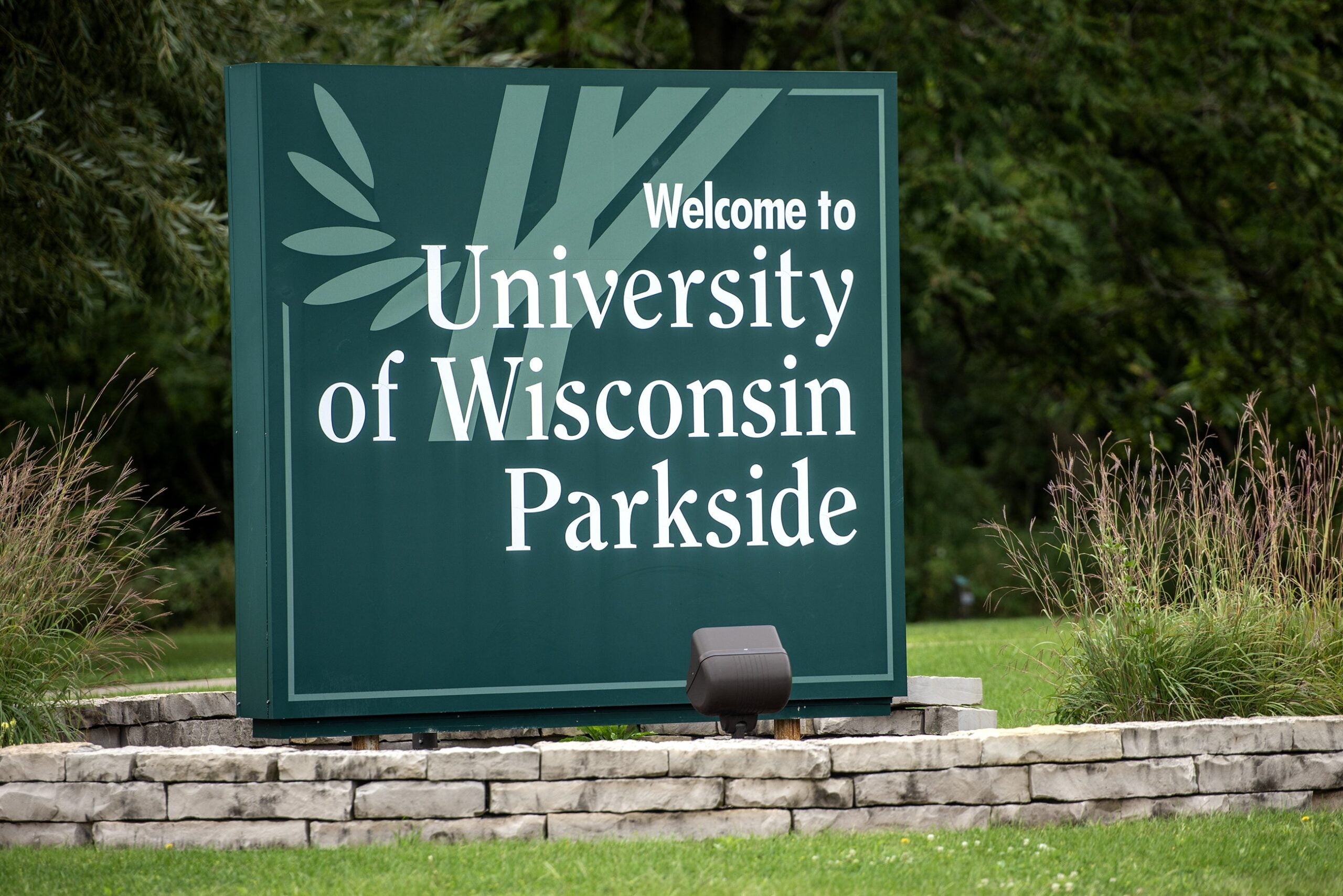A newly released third-party analysis raises concerns about the financial future of multiple state universities.
Last year, a forecast from the Universities of Wisconsin projected structural deficits at 10 of Wisconsin’s public universities ranging from millions to tens of millions of dollars.
Only three campuses — Madison, LaCrosse and Stout — were projected to generate enough revenue to meet expenses.
News with a little more humanity
WPR’s “Wisconsin Today” newsletter keeps you connected to the state you love without feeling overwhelmed. No paywall. No agenda. No corporate filter.
On Thursday, the UW system released updates from an external review into the finances at seven of the universities with projected deficits.
The reports completed by the firm Deloitte point to fiscal headwinds, including falling enrollment, struggles to retain students, and the end of federal COVID-19 aid.
And, as Universities of Wisconsin President Jay Rothman noted, Wisconsin ranks 42nd in the nation when it comes to state funding for public universities.
“While we will do our part on the expense side of the ledger, it is ultimately up to the state to decide whether it wants and can afford a weakened Universities of Wisconsin,” said during a news conference on Thursday.
It would take an additional $440 million to bring Wisconsin’s universities up to the national median of state funding, according to a UW news release.
Rothman told reporters “it’s fair to say” the university system will be asking state lawmakers for a funding increase in Wisconsin’s next two-year budget, though he said the amount of such a request has yet to be determined.
The recently completed reports apply to the universities of Superior, Oshkosh, Platteville, River Falls, Parkside, Whitewater and Green Bay.
Officials say they will release more reports from Deloitte in coming months, covering additional UW campuses and the Universities of Wisconsin Administration.
UW-Green Bay Chancellor Mike Alexander said the newly-released analysis highlights positive trends, including enrollment expansion that includes graduate students and dual enrollment high-schoolers.
“It also talks about opportunities we have moving forward as an institution, which is always helpful,” Alexander said in an interview with WPR. “And it’s always great to have a third party look at your final situation and give you an assessment.”
Nonetheless, Alexander says the report makes assumptions based on fiscal year 2023, and doesn’t fully account for reductions made in fiscal year 2024 nor for those planned in fiscal year 2025.
“It takes a snapshot in time of the finances of an institution and then sort of straight lines it from there as if the institution were going to make no additional changes” he said.
UW-Green Bay officials say they’re on track to eliminate a projected deficit of more than $2 million by the start of fiscal year 2025.
A strategic plan approved by UW’s Board of Regents in 2022 calls for structural deficits to be eliminated at all of the system’s universities by 2028.
Green Bay officials have discontinued two programs, citing low enrollment, and discussed eliminating even more academic offerings.
And, among other cuts, layoffs have recently been announced at UW-Green Bay, Parkside, Platteville and Oshkosh.
“Current and prospective students need to know how UWO is responding to the challenging headwinds disrupting higher education everywhere,” UW-Oshkosh Chancellor Andy Leavitt said in a statement Thursday. “The financial assessment is a powerful validation of the progress we have made, confronting UWO’s deficit head-on over the last several months. The report acknowledges our efforts to reduce an $18 million gap to $3 million through difficult but necessary measures while striving to shield student services and experiences.”
This month, regents approved UW’s second in-state tuition increase in two years. A decade-long tuition freeze ended in 2022 after being imposed by Wisconsin’s Republican-controlled state Legislature.
Wisconsin Public Radio, © Copyright 2025, Board of Regents of the University of Wisconsin System and Wisconsin Educational Communications Board.







